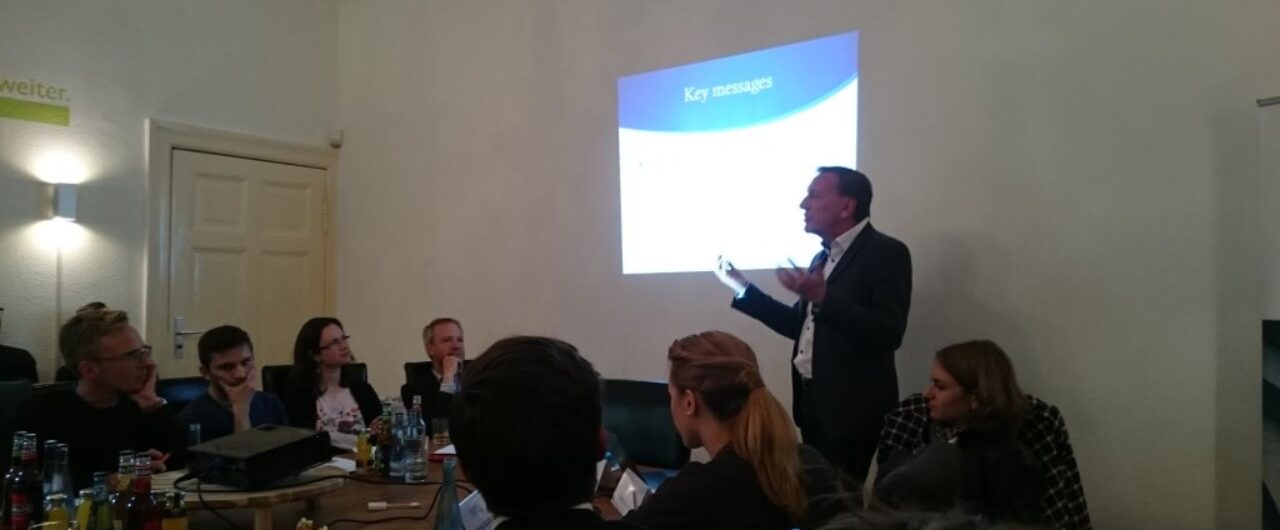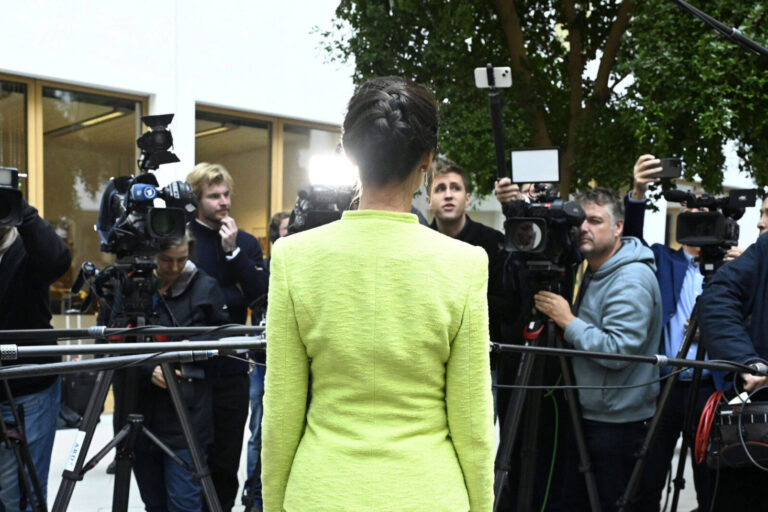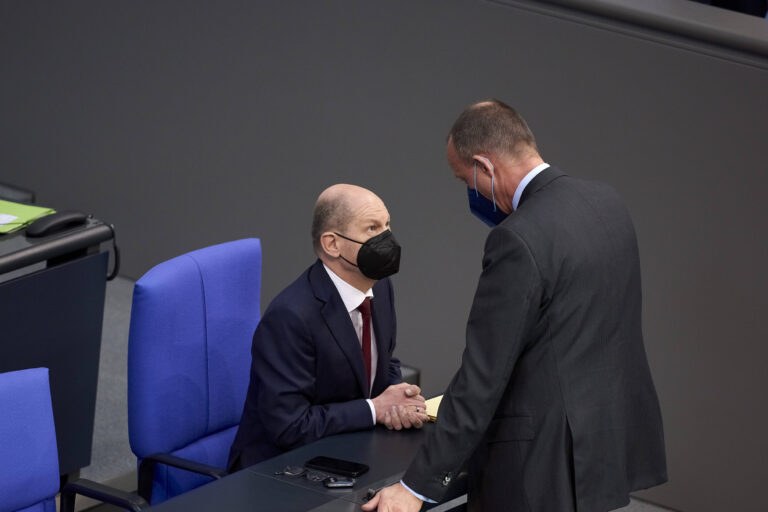Why do we believe individuals to be rational decision-makers, even if behavioural economics proves this to be wrong? How can we trust free markets to yield the best results for our society? Because we are submitting to myths, claimed Tomas Björkman, author of the new book „Market Myth“ on a discussion at Das Progressive Zentrum
Why do we believe individuals to be rational decision-makers, even if behavioural economics proves this to be wrong? How can we trust free markets to yield the best results for our society? Because we are submitting to myths, claims Tomas Björkman, author of the new book „Market Myth“.
During his book discussion at Das Progressive Zentrum, he presented three different gaps which he considers to significantly bias our view on reality:
1. The gap between our perception and the actual economic model
The mainstream economic models tell us that free and unregulated markets provide pareto-efficient results, so that nobody’s economic or financial situation can be improved without putting somebody else in a worse situation. Under certain circumstances (for instance equality at birth), this assumption might be true. But we should not overstretch this promise for two reasons: first, efficiency is not the same as justice.
Even if markets lead to perfectly efficient results, we as a society have to discuss how much inequality we are likely to bear without risking an unwanted social division. Secondly, the free-market-principle works for private, but not for public goods. As long as goods can be priced, markets are working. But how can we establish the value of the kerosene emission of a flight from Berlin to Tokyo?
These external effects have a measurable impact on phenomena such as climate change and should therefore concern all of us. At the moment, perpetrators of air pollution are not brought to account appropriately. These examples underline one of Tomas Björkman’s key points: we need a new democratic constitution of market rules in order to recapture our control over the unwanted excesses of capitalism.
2. The gap between the model and the prevailing market
Based on theoretical considerations of liberal thought leaders like Adam Smith and David Hume, subsequent economists used mathematical tools to model the economy and make it measurable. While doing so, they agreed on simplifications and assumptions which helped to describe reality. Björkman called many of these assumptions „crude“, especially the rational acting homo-economicus. He claimed that this is, „simply not how humans work“, and added, „the early economists did the best they possibly could. But today we have much more understanding of human nature“.
3. The gap between the prevailing market and other possible markets
Influenced and biased against the dominating neoliberal school of thought, we tend to forget that markets are socially constructed systems rather than ultimate authorities. Björkman compared the widespread market-fetish to former submissions to almighty gods or the boundless fascination which enlightenment brought to society. Instead, he made the case for a more reflected and critical perception of markets and emphasised their derivation from an enduring historical process. Being aware of these origins, it quickly becomes clear that we have the ability to adapt markets to our future challenges.

Despite his lasting critique of the free-market dogma, Björkman highlighted a precious feature that makes markets the best system we have had so far: its self-organising character, which has brought growth and wealth to large parts of the society in a very short period of time. The audience made the point that this statement is a clear contradiction to the theses previously presented. Björkman responded that markets should not be banned at all in the future, but rather should be modified with fair rules and a superior common goal.
The evening’s discussion ended with a broadly shared agreement: the next step is to define a new meta-narrative to set the framework for a self-determined society that allows the game of supply and demand under democratically constituted rules.





